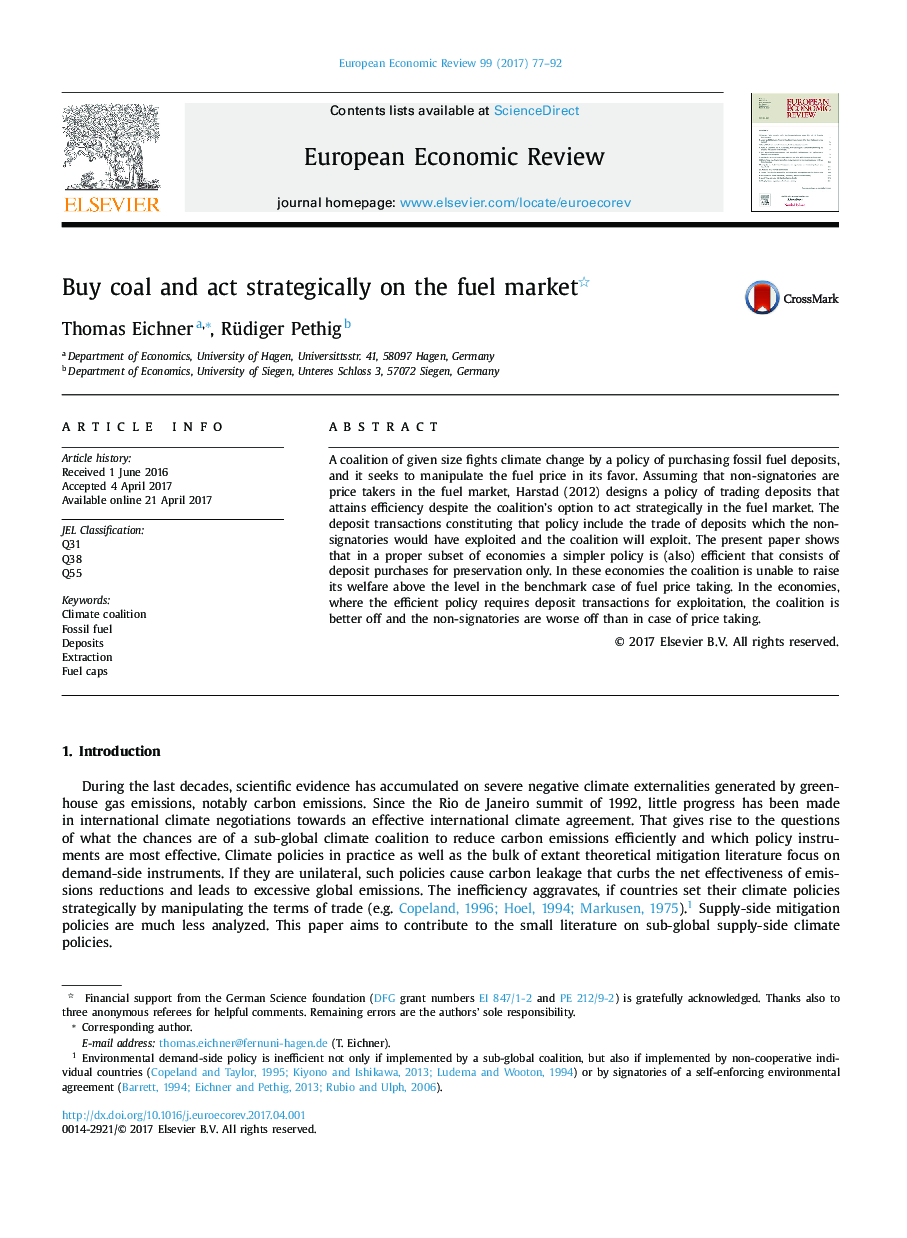| Article ID | Journal | Published Year | Pages | File Type |
|---|---|---|---|---|
| 5066261 | European Economic Review | 2017 | 16 Pages |
A coalition of given size fights climate change by a policy of purchasing fossil fuel deposits, and it seeks to manipulate the fuel price in its favor. Assuming that non-signatories are price takers in the fuel market, Harstad (2012) designs a policy of trading deposits that attains efficiency despite the coalition's option to act strategically in the fuel market. The deposit transactions constituting that policy include the trade of deposits which the non-signatories would have exploited and the coalition will exploit. The present paper shows that in a proper subset of economies a simpler policy is (also) efficient that consists of deposit purchases for preservation only. In these economies the coalition is unable to raise its welfare above the level in the benchmark case of fuel price taking. In the economies, where the efficient policy requires deposit transactions for exploitation, the coalition is better off and the non-signatories are worse off than in case of price taking.
